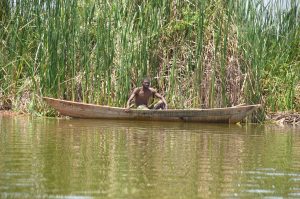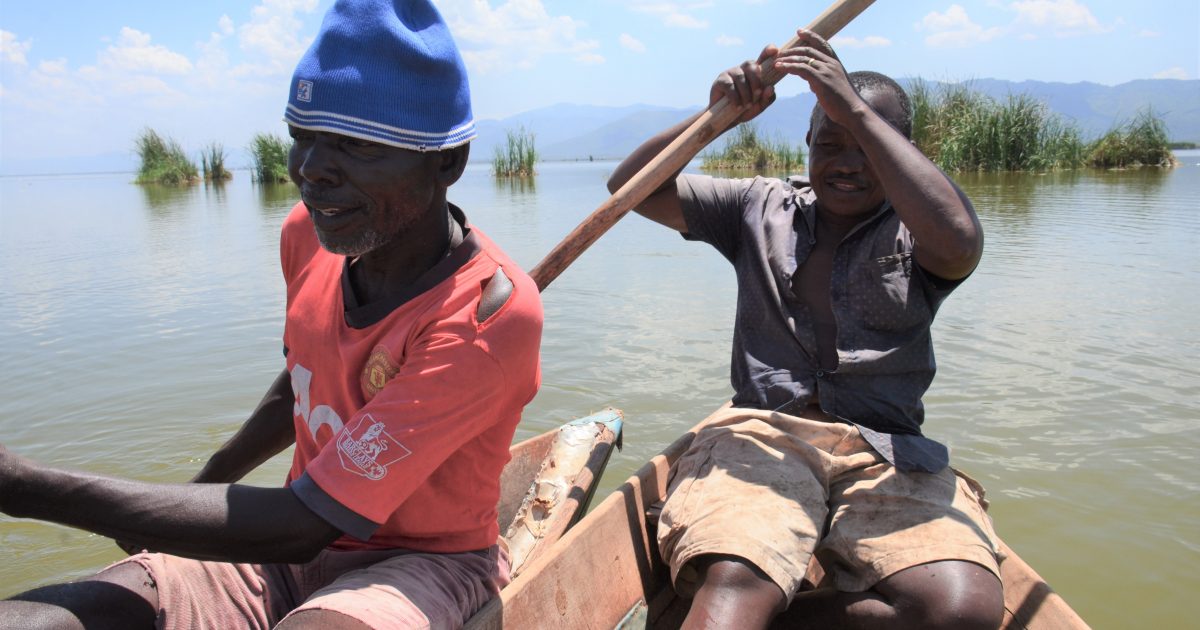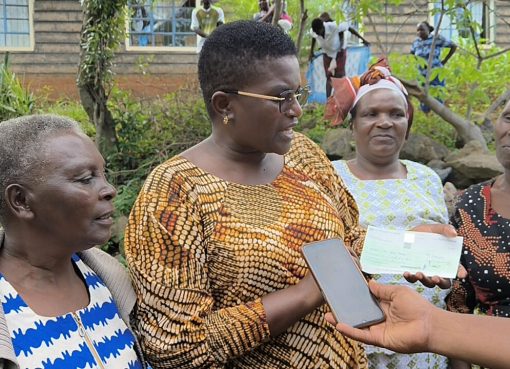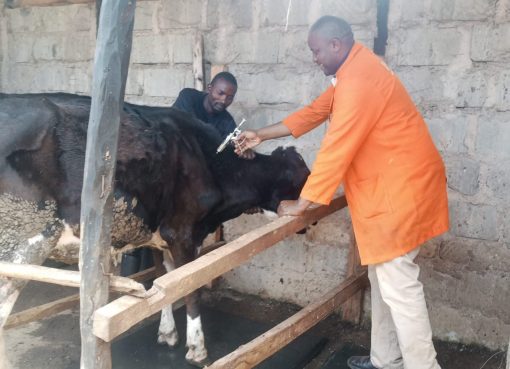When Eliama Khalid pushes the wooden canoe into the murky but cool waters of Lake Jipe, it is with the unconscious panache of a veteran fisherman. His moves are more instinctual than deliberate. Even when he hops into a canoe and paddles smoothly out to the open waters, every smooth stroke has that unmistakable finesse of a man who is at peace with the waters around him.
His face, craggy from years of beating by wind and lake waters, betrays nothing of his turmoil within. Still, he is a worried man.
“Our way of life is going to change. We must adjust now to avoid trouble,” he says firmly.
Mr. Khalid is amongst hundreds of artisanal fishermen whose livelihoods are sustained by Lake Jipe in Taveta sub-county. For over a century, this fresh-water transboundary lake has sustained artisanal fishermen like him from both Kenya and Tanzania. Over that time, the survival of the lake has come under serious threat from multiple fronts ranging from natural to man-made.

Activities like overfishing, relentless growth of invasive marine plants, heavy siltation and sharp decline of water from clogged canals have conspired to drive this marine body to the edge of extinction. For several years, marine experts and conservationists have called for the government’s intervention to save the lake.
On Thursday, the government adopted what is being viewed as the first of concrete steps to salvage Lake Jipe and restore this magnificent marine jewel to her former glory. A partnership between Kenya Marine and Fisheries Research Institute (Kemfri) and fisheries department in Taita-Taveta County government saw the inaugural deployment of an enforcement unit to the lake. This unit will oversee the implementation of a raft of rules intended to address the menace of overfishing.
The five-man unit will conduct intensive patrols in the lake to ensure fishermen on the lake have complied with the requirements that have outlawed using fishing nets with holes whose circumference is less than four inches. The usage of small fishing hooks is also a crime that will lead to prosecution.
Nets with small holes and tiny hooks have led to fishing of immature fish and fingerlings thereby inhibiting regeneration of fish population of the lake.
County Executive Committee Member (CECM) for Livestock, Agriculture and Fisheries Davis Mwangoma says this move will be critical in restoring sustainable and exploitable fish populations in the lake. He also said the enforcement of these rules would save the critically endangered Lake Jipe Tilapia from going extinct.
“We need to save the fish population in this lake and make sure the immature fish is not harvested before its time by using illegal fishing gear,” he said.
Lake Jipe Tilapia, scientifically named Oreochromis Jipe, is listed as critically endangered by the International Union for Conservation of Nature (IUCN). The fish is only endemic to Lake Jipe.
Past research on the marine life on the lake also showed that pigmy geese and water lilies that once thrived in the lake have completely disappeared from the lake.
The deployment of the enforcement unit to the lake has sent a wave of muted panic through the community of fishermen in the region. With the shadow of arrest and prosecution over fishing violations looming large, most fishermen are trapped between impossible choices none of which is pleasant.
Mr. Juma Seva, the chair of Mkwanjuni Beach Management Committee (BMC), captures this dilemma. He admits that fishermen use the proscribed gear which has contributed to the dwindling fish population. He however notes that the permitted fishing gear is excessively expensive and is out of reach to artisanal fishermen who live in crippling poverty.
“The required gear is expensive and few if any can afford to buy it. We need assistance to acquire the required nets and hooks,” he explains.
The biggest challenge is poverty. The lake is the easiest way to earn a living for unemployed local residents. Even without money, boat owners can rent out their boats to fishermen to be paid afterwards either by sharing day’s fish catch or money from fish sale. With an enforcement team roaming the waters, it will become nearly impossible for fishermen who have not complied with the directives to get into the lake.
Illegal nets and overfishing aside, there have been other major threats confronting the iconic lake and local fishermen. The most prominent is the relentless growth of water reeds that are choking the life out of the lake. The towering marine plants, which initially started from the edges of the lake, have spread exponentially across this water body and are now jutting out in several clumps from the middle of the lake.
The outcomes are dire. Lake survey reports indicate it has shrunk in size. In the past, the lake occupied an area of 100km2 which has come down to approximately 30km2. Heavy siltation and flow of soil through the canals had formed a conducive environment for growth and rapid spread of this invasive weed.
The presence of KWS in management of the lake has also compounded matters for the fishermen. A substantial chunk of Lake Jipe that is on Kenyan side falls under Tsavo West National Park that is managed by the national government. This section of the lake is a no-go zone. Fishermen who stray are classified as fish poachers. They are arrested and prosecuted.
Mr. Eliami Khalid admits he was once arrested when he strayed into KWS waters. “I have served my term because of what they termed as trespassing. No one dares go there unless they want to be jailed,” he says.
Because of its less disturbance from fishing activities, the bulk of the fish has over the years migrated to the KWS section of Lake Jipe leaving the community fishing grounds with scant fish. Hundreds of fishermen are now forced to scramble for the fewer remaining fish in the zone not restricted.
Currently, the fisheries’ officials say they intend to stabilize the fish sector. The first step is to focus on this degraded lake. The department has started desilting several canals to increase inflows into the lake. Canals desilted include Sombasomba, Moguru, Sembike, Letisia and Maloja. There are also plans to repopulate the lake with fingerlings.
“We want to revive the fish sectors and Lake Jipe is key to that plan. We have not tapped into the fish production potential that we have. We are producing less than 300 tons yet we can do 800 tons,” said CECM.
In 2019, Kemfri conducted a fish-production survey on Lake Jipe and Lake Challa. The survey established that Jipe has a potential of producing 600 tons annually. Currently, both lakes produce a paltry 250 tons of fish every year.
For Jipe fishermen, the plans to revive the fisheries sector are welcome. However, their biggest worry remains how to earn a living from the lake without falling foul of the authorities over the use of illegal nets.
“If the government can give us proper nets, we will be the team leading efforts to conserve and preserve this lake. We only need help,” says Mr. Seva.
By Wagema Mwangi





